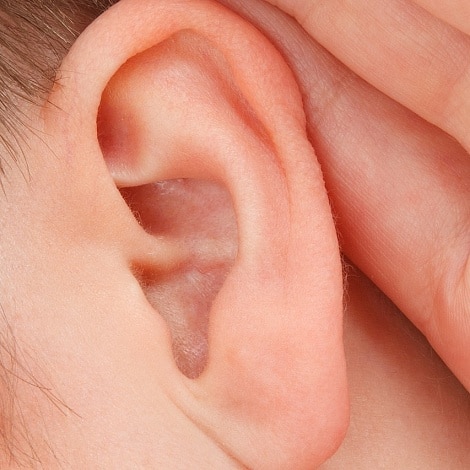Did you know that the skill of active listening could be your greatest social asset? Do you think you are a good listener? Do people seek you out to share their successes, failures and problems? Does your boss value your opinions? Does your partner open up to you? Do your friends trust you with their deepest secrets? If the answer to those questions is yes, then you are almost certainly a good listener.
You are not a good listener if:
- Your mind wanders when being spoken to
- You don’t remember instructions
- You focus on what you are going to say next
- You impatiently wait for the speaker to pause so you can make a rebuttal
- You interrupt
- You are focused on something else
- You are doing two or more things at once while someone is speaking to you
- Your gaze wanders around the room
- You turn the conversation to yourself
- You change the subject to something you want to talk about
- You offer advice when it hasn’t been requested.

How to Practice Active Listening
- Read the list above and begin to do the opposite.
- Be mindful in the moment. Stop mentally writing your shopping list or planning dinner and pay attention to the words you are hearing.
- Repeat instructions back or ask for explanations if you don’t fully understand.
- Don’t think of what you are going to say next. The context might change with what the other person is saying and you’ll sound as if you’ve gone off on a tangent.
- Like you, the other person deserves to express themselves, so let them do so. Don’t interrupt because you think your words are more important than theirs.
- Put your phone down. Turn away from your laptop. Stop earwigging that other conversation taking place nearby.
- Bring your gaze back to the speaker. You don’t have to stare at them intently, but do them the courtesy of looking at them when they speak.
- It’s not about you. Don’t offer your viewpoint, your observations or your opinion if they aren’t required. You can do that after the speaker has finished and it is obvious that they want to hear your point of view. In other words, respect the other person.
- Don’t change the subject unless the current topic is exhausted and has come to a natural conclusion.
- Don’t offer advice unless asked for it.
- Should you be unable to give the other person your full attention, then say so. Tell them that the conversation is important to you and that you’d like to resume it later. Schedule a definite time, don’t leave it vaguely floating.
How to Listen to Your Partner
Conversations with long-term partners can easily slip into a pattern. We know what they are going to say. Often we’ve heard it before. But can you honestly say that you listened properly. Perhaps if you give them your full attention, they won’t feel the need to repeat themselves.
When they are making a complaint about your behavior instead of getting defensive and following by counter-attacking, really listen to what they are saying. For example, you think they are griping that you didn’t clean up after the previous night’s supper. You dismiss it because they are habitual moaners and they should just chill out. If you paid attention and listened to them you might discover that they’d had a stressful day. Finding a kitchen full of dirty dishes and untidy counter tops was the last straw. They might even feel anxious and uncomfortable trying to explain how they feel to you because of the likelihood of getting into a fight. Why would you want your love to feel like that? Wouldn’t it be beneficial for both you and your relationship if you apologize and try not to be so messy in future?
Your relationship could be so much better if you put into practice some good active listening skills:
- Be empathic. Try to see things from your partner’s viewpoint. Imagine what they are feeling. How would you feel if you were them? To do this you have to listen to their words and watch their body language.
- Process what they are saying by putting the whole story together – not only the facts, but how they feel about the situation.
- Ask questions and respond accordingly. Use, “So what you’re saying is…?” and “I didn’t realize you felt that way about…”
- Have a proper conversation at least once a day. Make time to listen to each other.
Deepen Friendships with Active Listening
It’s fun being with your friends and chattering happily away. At the end of your get-together, did you notice if one of them was quiet? Unhappy? Stressed? Upset? Did you listen to what she said or were you too caught up in the moment to pay attention. Did you brush away her concerns to cheer her up and keep the mood positive?
Take a moment to give a hundred percent of your attention to her. Get the rest of the group to be silent while giving her the chance to speak. Don’t dismiss her problem. Listen to her. Be a good friend.

Active Listening at Work
The working environment can be extremely distracting, so when a colleague approaches your desk make sure to give them your full attention. You may learn something.
When your boss is speaking to you, stop thinking about his garlic breath and listen to what he’s asking. Repeat back any instructions.
In meetings, turn your phone off. Stop texting under the table. Don’t allow your mind to wander. Listen to whoever is speaking and make notes to remind yourself of the key points. Ask questions at the appropriate time.
If you supervise others, make sure you practice active listening constantly. You must often read between the lines to ensure the well-being of your staff. Know what they are saying, even if they are reluctant to spell it out. Ask questions, respond appropriately, repeat back anything you don’t quite understand. Say, “So what you are saying is…? Is that right?”
In the image above, can you identify who is actively listening and who is allowing their attention to wander?
The Benefits of Being a Better Listener
By cultivating an active listening personality, you will discover that you become more mindful and able to live in the moment. The habit of focusing on other people’s speech brings you right into the here and now – something that is beneficial in all aspects of your life.
Relationships become more sensitive and two-way. Knowing that your partner respects and values your opinion is a huge boost to any relationship. Same goes for your children. A child who feels listened to also feels valued.
Active listening will gain you respect among your colleagues and superiors. You’ll have a reputation for being someone to come to for advice. Someone whose opinions are worth listening to. You’ll notice that by listening attentively also encourages others to do the same.
Active listening will make your world a better place.
Images courtesy of Pixabay


0 Responses
Thank you so much for posting this article. It's a lot of common sense but there is also so much that we just forget. This is a great reminder and I am going to save the link so I can go back and reference it when I need it. Thanks again, Lauren :).